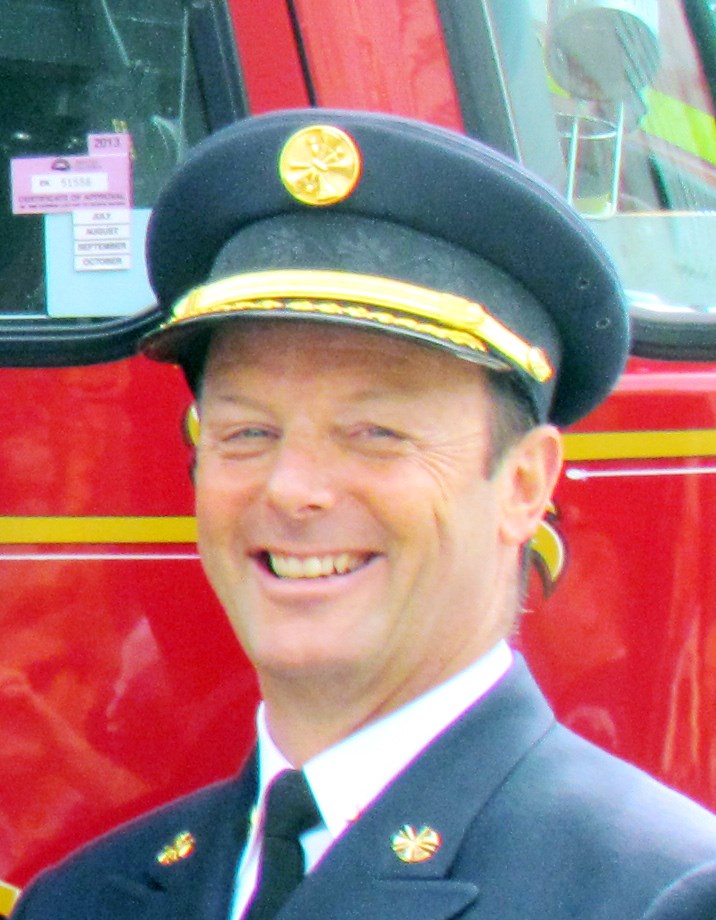Costs are slightly decreasing for the fire department, according to its 2013 annual report.
The report, which was released last month, indicates the department is doing a solid job of keeping costs down while good maintaining service for the City of Burnaby. Last year, the department cost citizens more than $35 million or about $153 per capita, down $10 per capita from the previous year, which saw the department’s net expenditures total more than $37 million.
Fire chief Doug McDonald credits the slight decrease to the department’s tracking of its finances in order to stay within, if not under, the budget handed down by city council.
“It is public expenditures and we do get scrutinized for it, so we’re very tuned into our money and making sure that we’re providing as good a service as we can for what we have,” he said.
Major expenditures for the department include new vehicles, gear and equipment. One of the ways the department keeps costs down is by keeping its vehicles off the road as much as possible as fuel and maintenance costs are high.
Most of the department’s big-ticket items, including fire trucks, command vehicles and ladder trucks, are on a 15-year lifecycle that determines when the vehicles need to be replaced. The lifecycles are dictated by government guidelines and industry standards, and once the department determines a vehicle has reached its end it is sold at auction for a small profit.
The department prepares to purchase new vehicles years in advance so that when the time comes, they don’t have to go to city council asking for more money, McDonald said.
Every year, the department saves about $300,000 to $400,000 for future equipment costs. The funds are divided by the finance department into accounts for vehicles and gear to ensure there’s enough money available down the road.
“The money sits in those accounts until we need to repurchase,” he said. “It’s tough to go back to council, or the public for that matter, and say, ‘Oh by the way we need a new fire truck, we need a million dollars.’ We have all that money sitting and ready to go when our trucks are due for replacement.”
The department typically purchases one new vehicle each year. This year, the department bought a new ladder truck, and a command vehicle is scheduled for next year, McDonald said.
But when it comes to staffing, the department has been hiring fewer and fewer recruits because there have been fewer retirements in the past few years, McDonald said.
“We’re actually in the end of a great, big group that was hired back in 1979. They’re kind of ending their 35 years, so most of those people are actually already retired,” he said.
Nine recruits were hired in 2012 while only six were hired in 2013. This year, the department hired seven new recruits and next year, McDonald said only about three to five new recruits would be hired.
While recruitment slows down, there is a chance that in the coming years a new station or expansion may be required in response to population growth happening in certain areas of the city, including Brentwood and Lougheed.
“As always, we’re trying to plan for the future, so we’re always looking at what the impacts to the city is going to be and the citizens, based on the growth and the density that’s happening,” he said.



